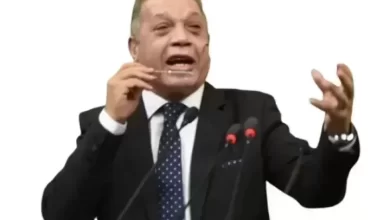Saudi Arabia 2030..Oil.. Islam.. Football.. Responsing to Dubai

The aforementioned controversial statement is credited to the renowned Russian YouTuber, Mr. Ilya Varlamov, who recently released a highly successful documentary about the Kingdom of Saudi Arabia. This documentary has garnered over a million viewers on YouTube and has also gained significant viewership and exposure through Russian television channels – This is what my Russian friends told me when they watched me on the day the film was released on December 21 on one of the major Russian channels as well as on YouTube.
What makes this even more interesting is that I had the opportunity to participate in this successful venture as an economic expert from Egypt. Last November, I received a call from Mr. Varalmov’s assistant, who inquired about my interest in being part of this enriching experience based on my strong and informative appearance via RT International as she siad. Upon accepting the offer, I provided my insights on the role of oil in the Saudi Arabian economy. Additionally, I shed light on the Saudi Sovereign Funds and how the regime utilizes them, as well as whether other sources of income align with the Saudi Vision 2030.
Dear readers, it is important to note that documentaries have become a powerful and influential form of media, sometimes surpassing the impact of feature films. They are now receiving international recognition through prestigious film festivals and have piqued the interest of audiences on various television channels and platforms.
Consequently, this has attracted numerous sponsors and producers to invest in documentary production. However, documentaries must be approached as scientific projects rather than mere artistic endeavors. They should be centered around a central thematic question that serves as the foundation for engaging debates and discussions.
Answers to the questions tackled by the producer:
Firstly, concerning the role of the oil industry in the Saudi economy, it is undeniable that oil, gas, and their by-products contribute to at least 50% of the economy in KSA and are the main reason for its prosperity. The Western world categorizes oil-rich nations as “rentier economies” due to their heavy reliance on natural resources. However, we believe that this is not necessarily a negative aspect, as energy plays a crucial role in global economic growth and development, and it also holds significant influence in wars and global conflicts as a strategic commodity. This is evident in Russia’s strong and dominant position during its confrontation with NATO in Ukraine. Furthermore, Russia’s historical agreement with KSA through OPEC Plus five years ago had a profound impact on the entire world. Additionally, the oil sector in KSA provides employment opportunities for tens of thousands of individuals, both locally and internationally.
Secondly, regarding the Saudi sovereign funds, it is important to note that these funds were established approximately 50 years ago. However, in 2015, the articles of association of these funds were amended to appoint His Excellency Mohamed Bin Salman, the crown prince, as their Chairman. The total value of the sovereign funds amounts to SR 2.23 trillion, and they are utilized to strengthen various sectors of the KSA economy, including infrastructure, real estate, industrialization, scientific research, support for small and medium-sized enterprises (SMEs), and empowerment of education, youth, and women, in particular.
Thirdly, apart from oil, KSA relies on other sources of income. It is important to highlight that tourism in the country is not solely centered around religious Muslim pilgrimages but also includes entertainment and leisure activities, such as the Riyadh Festival. Additionally, KSA has invested in soccer by recruiting highly skilled professional players for the Saudi league, which has gained global recognition through domestic Saudi channels. Furthermore, KSA is involved in ambitious projects like Neom and is actively investing in scientific research, which will bring about a significant shift in various aspects.
Finally, it was truly an exceptional opportunity to engage in a comprehensive discussion regarding the fundamental economic foundations of a neighboring and allied nation like KSA. It is crucial to acknowledge that KSA holds a significant position as one of Egypt’s strongest allies. Moreover, it is noteworthy that both Egypt and KSA are set to become full members of the BRICS Plus alliance by January 2024, thereby contributing to the stabilization of the global order.
Documentaries serve as a vital component of soft power, playing a pivotal role in disseminating information to a global audience. When utilized effectively and objectively, this genre of media enables individuals to gain a deeper understanding of specific topics or countries.
This particular issue brought to mind a documentary I produced in Iran titled “Sunnis in Iran.” Through this documentary, we successfully addressed the question of whether the Sunni population in Iran faces oppression or not. Documentaries possess the ability to challenge and dispel stereotypes by shedding light on the realities that exist.
Considering the positive experience I had with Mr. Varlamov, I am eager to embark on a similar venture in the future, provided there is a suitable project that aligns with my expertise in economics, the new world order, and international economic relations.
Be guided accordingly.
Ahmed Moustafa
Director of Asia Center for Studies and Translation

 to all..
to all.. 


